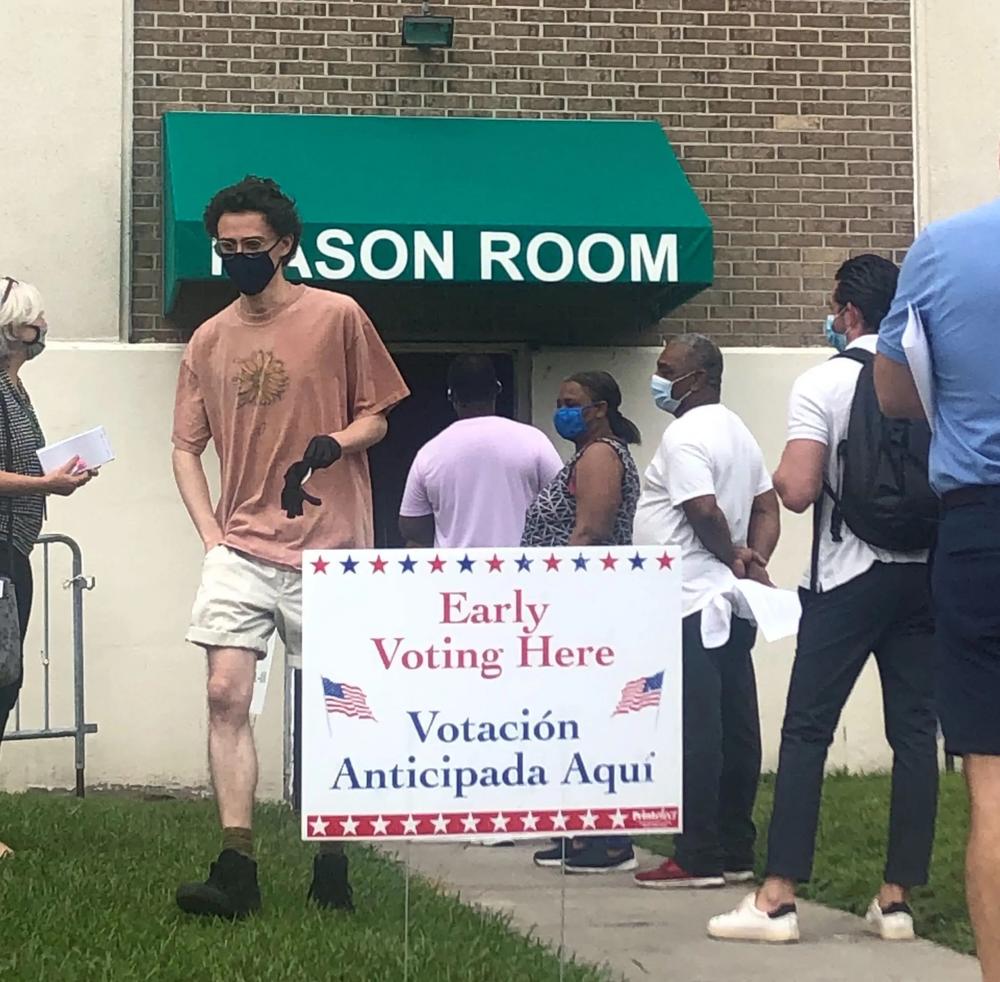
Caption
Voters wait in line at the Savannah Civic Center on the first day of early voting for the November 2020 general election.
Credit: Margaret Coker / The Current

Voters wait in line at the Savannah Civic Center on the first day of early voting for the November 2020 general election.
Margaret Coker, The Current
There are 73 women in the Georgia General Assembly — or 30.5% of the Legislature’s total seats. Two of those women, Reps. Edna Jackson (D-Savannah) and Anne Allen Westbrook (D-Savannah), joined a group of political donors in Savannah last week to discuss policy issues that they successfully championed during the spring legislative session — and what legislation they plan to focus on in the upcoming year.
As for legislation that has local impact, Jackson cited bills that the entire Chatham-area legislative delegation, both Democrat and Republican alike, joined together to get passed. That included an increase for hotel taxes in Savannah to match the state standard — a measure expected to raise millions of dollars to fund maintenance on key downtown infrastructure.
The other notable local piece of legislation that passed was one that raises the salaries of Chatham County school board members. The salary increases were partly an acknowledgement of the board members’ efforts at a time when education is at the forefront of some of the most divisive now facing the state.
But a significant portion of the discussion, hosted by the Georgia WIN List, focused on gun violence in Georgia and the lack of bipartisan support to enact gun control laws.
“Guns are the No. 1 killer of our children. Gun violence drains our public budgets,” Westbrook said. “We can’t even get a committee hearing” to discuss policies aimed at reducing” those tragedies,” she said.
The audience of some 60 people also dug into the intricacies of access to health care, reproductive rights and the hottest of current political hot potatoes: abortion.
It is the issue of abortion that will determine how quickly congressional seats flip from Republican to Democrat in Georgia, both in 2024 and beyond, believes Melita Easters, founder and executive director of Georgia WIN List.
For Black voters, in particular, to keep casting ballots for Democrats, the state party needs to expand its message about abortion access into an overarching concern about health care access in general, warns Fenika Miller, deputy national field director for Black Lives Matter.
Half of Georgia’s counties do not have an OB/GYN, and Black Georgian women have the highest rates of maternal mortality in America, noted Miller, who lives in Warner Robbins.
“Black Georgians are among the most conservative people in the state,” she said. “That might not be a popular take, but it’s true. Abortion by itself isn’t going to animate these folks. Health care will.”
Georgia Win List is a political action committee aimed at changing the balance of power in Georgia by recruiting, training, supporting, electing, and reelecting Democratic women who will serve as effective advocates for the issues most important to families and women, including the preservation of reproductive freedom.
This story comes to GPB through a reporting partnership with The Current.